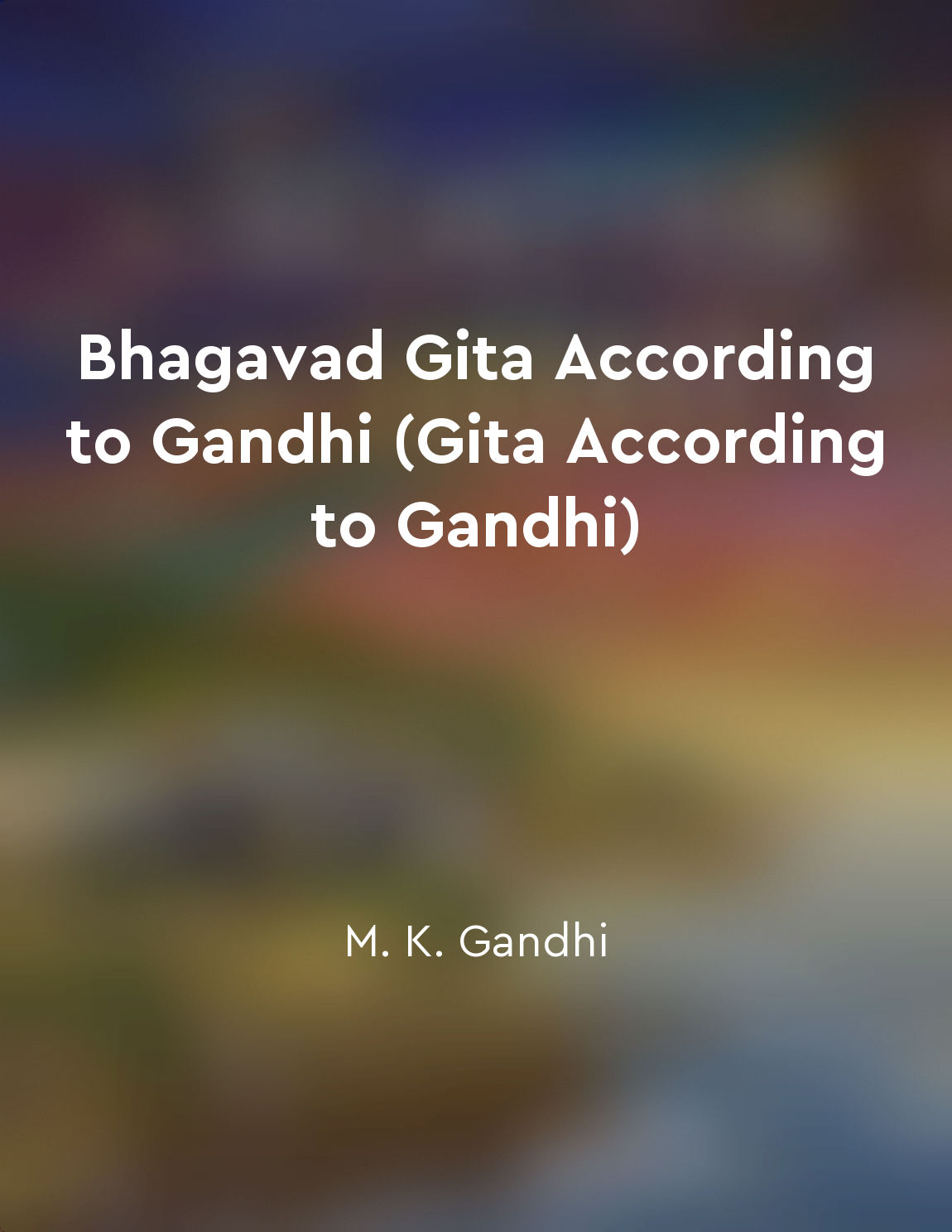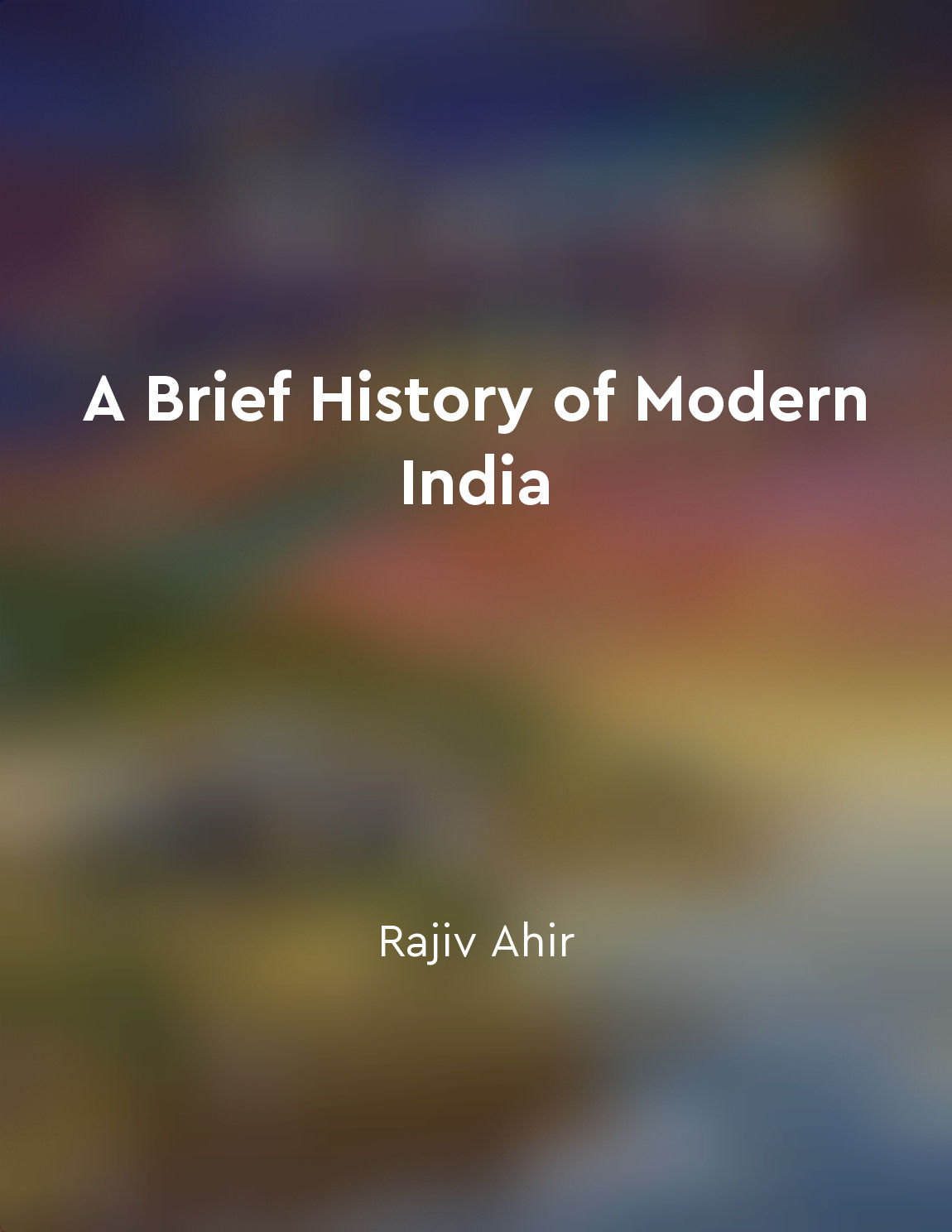Noncooperation and civil disobedience movements from "summary" of A Brief History of Modern India by Rajiv Ahir
The noncooperation movement was a significant turning point in India's struggle for independence. It was launched by Mahatma Gandhi in response to the Jallianwala Bagh massacre in 1919. The movement aimed to challenge British authority through nonviolent means, such as boycotting government institutions, schools, and foreign goods. This mass mobilization of Indians from different walks of life demonstrated unity and strength in their fight against colonial rule. Civil disobedience, another form of protest, was initiated as a follow-up to the noncooperation movement. It involved breaking unjust laws and peacefully accepting the conseque...Similar Posts

Practice selfdiscipline and self-control
The Bhagavad Gita teaches us to practice self-discipline and self-control. This means that we must learn to control our desires...
Emphasize selfreliance and self-discipline
Gandhi strongly believed in the importance of individuals being self-reliant and having self-discipline. He emphasized the need...
Colonial exploitation
The exploitation of India by the British colonial rulers was a central feature of their rule. This exploitation took various fo...
Struggle for selfgovernance
The struggle for self-governance in India was a long and arduous process that was marked by various phases and strategies emplo...

National recognition and awards
Throughout my life, I have been fortunate enough to receive national recognition and awards for my actions and contributions. T...
India's diverse culture continues to thrive
The rich tapestry of India's cultural heritage is woven with threads of tradition, innovation, and resilience. Throughout the c...
Famines and poverty
In the early 19th century, famine was a constant specter hanging over the Indian subcontinent. The British East India Company's...

